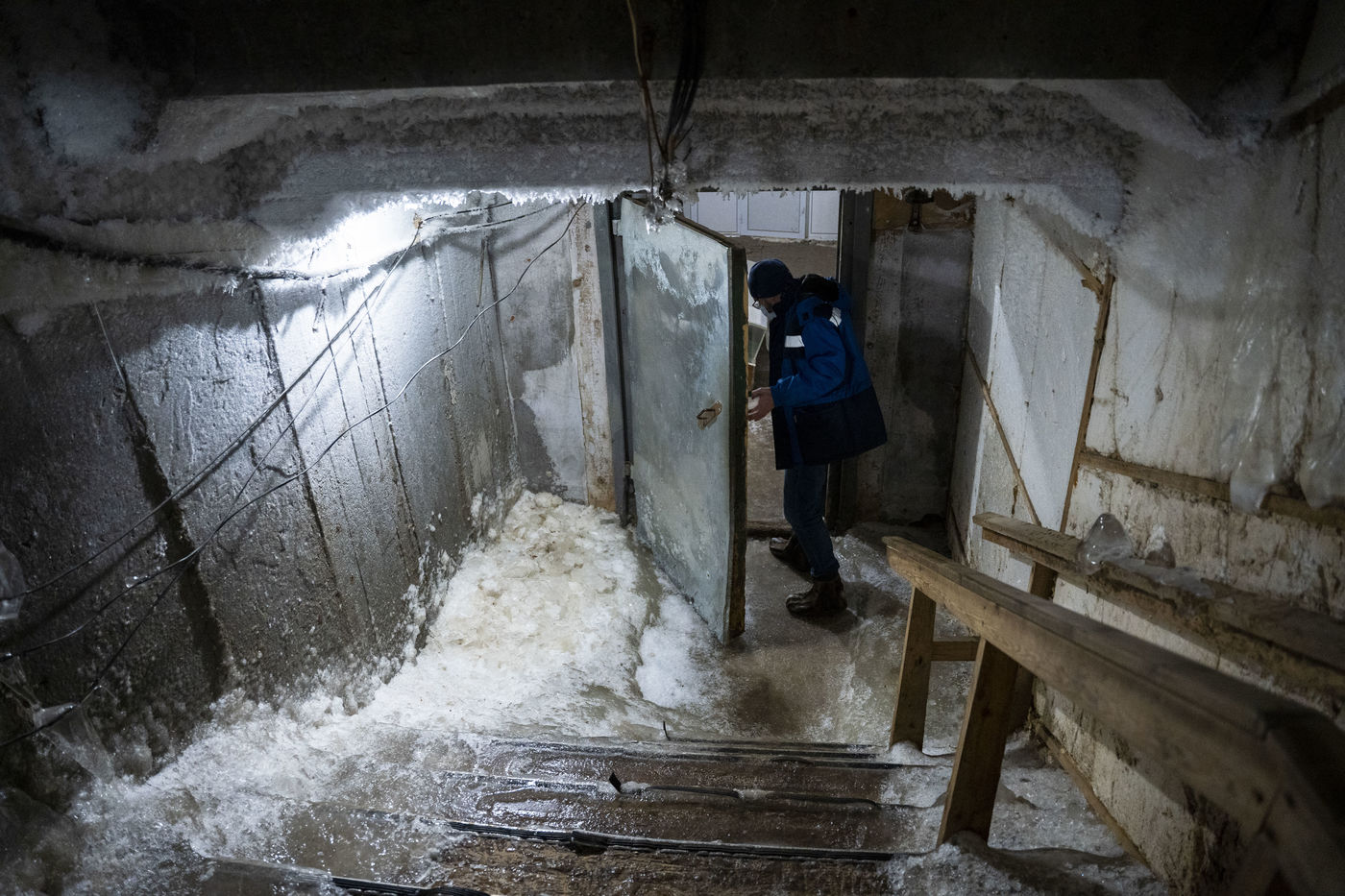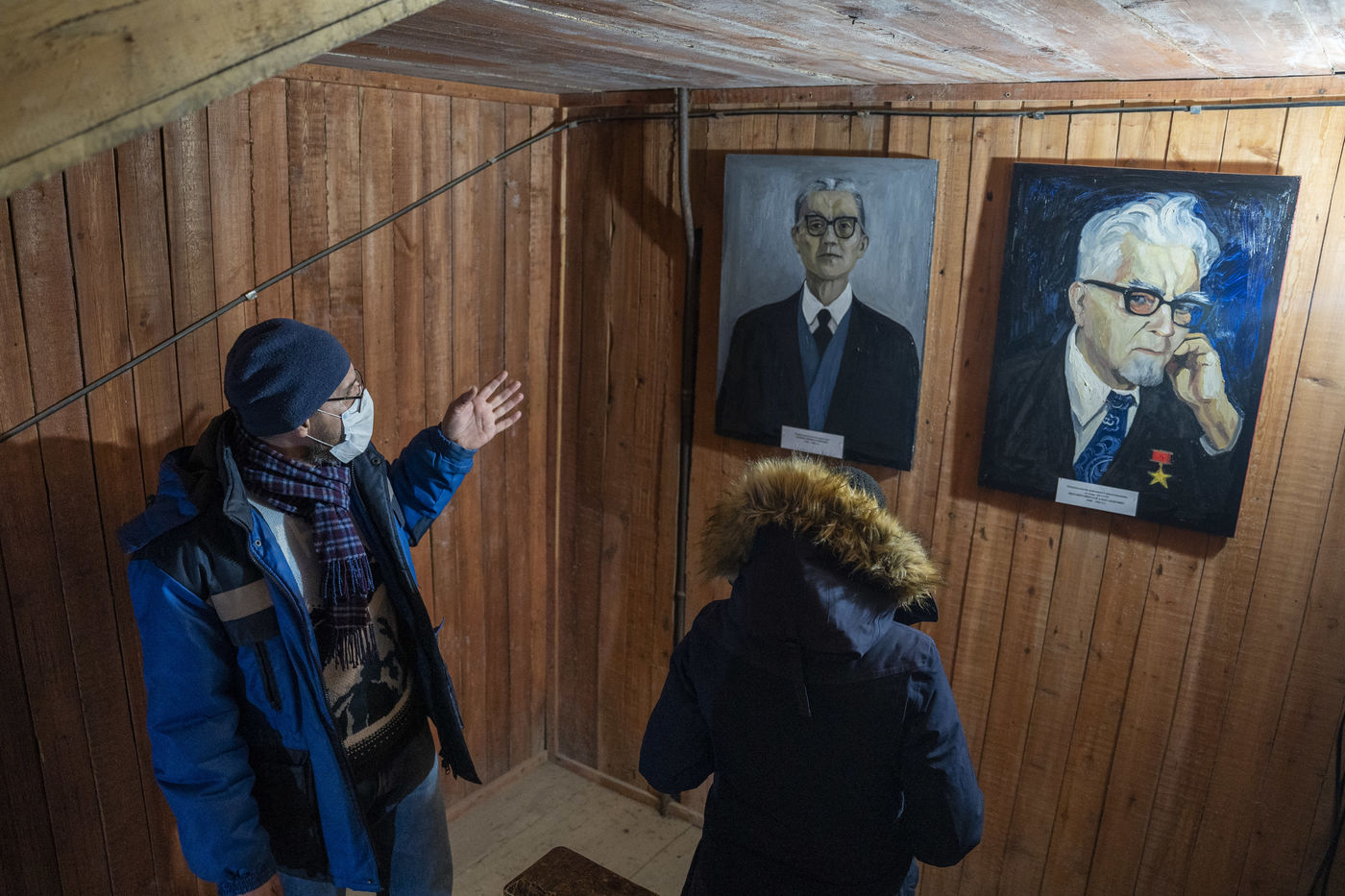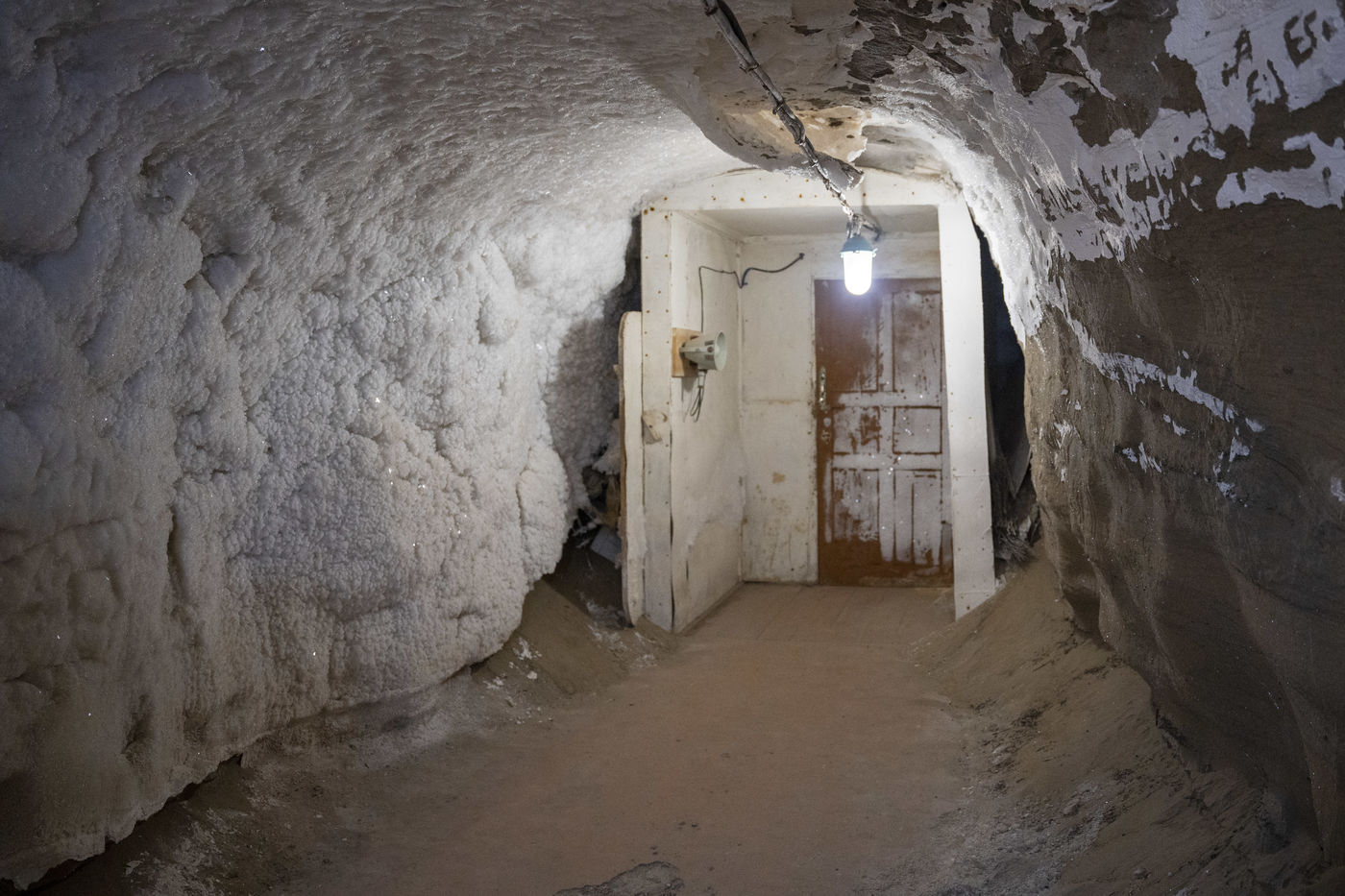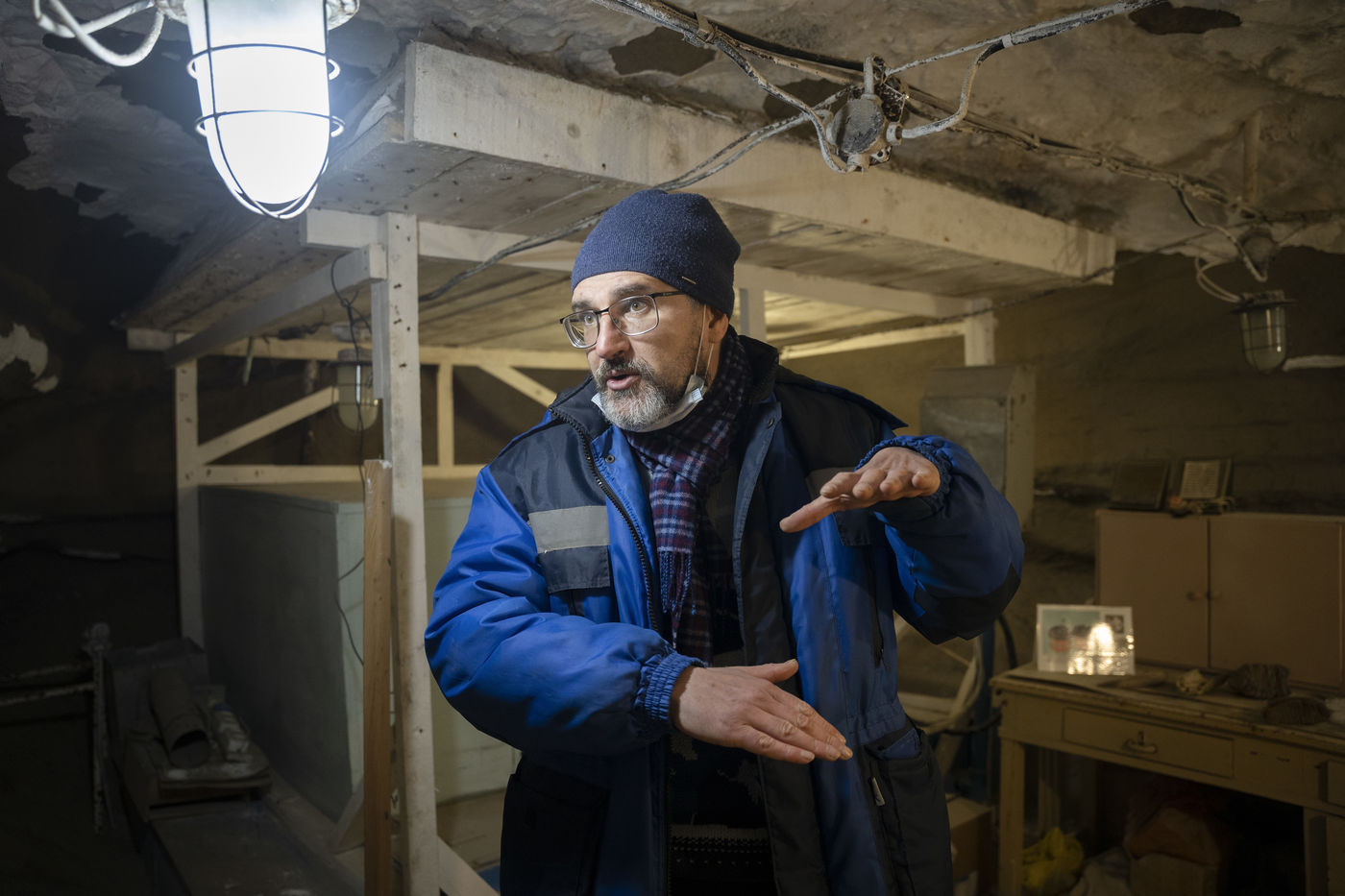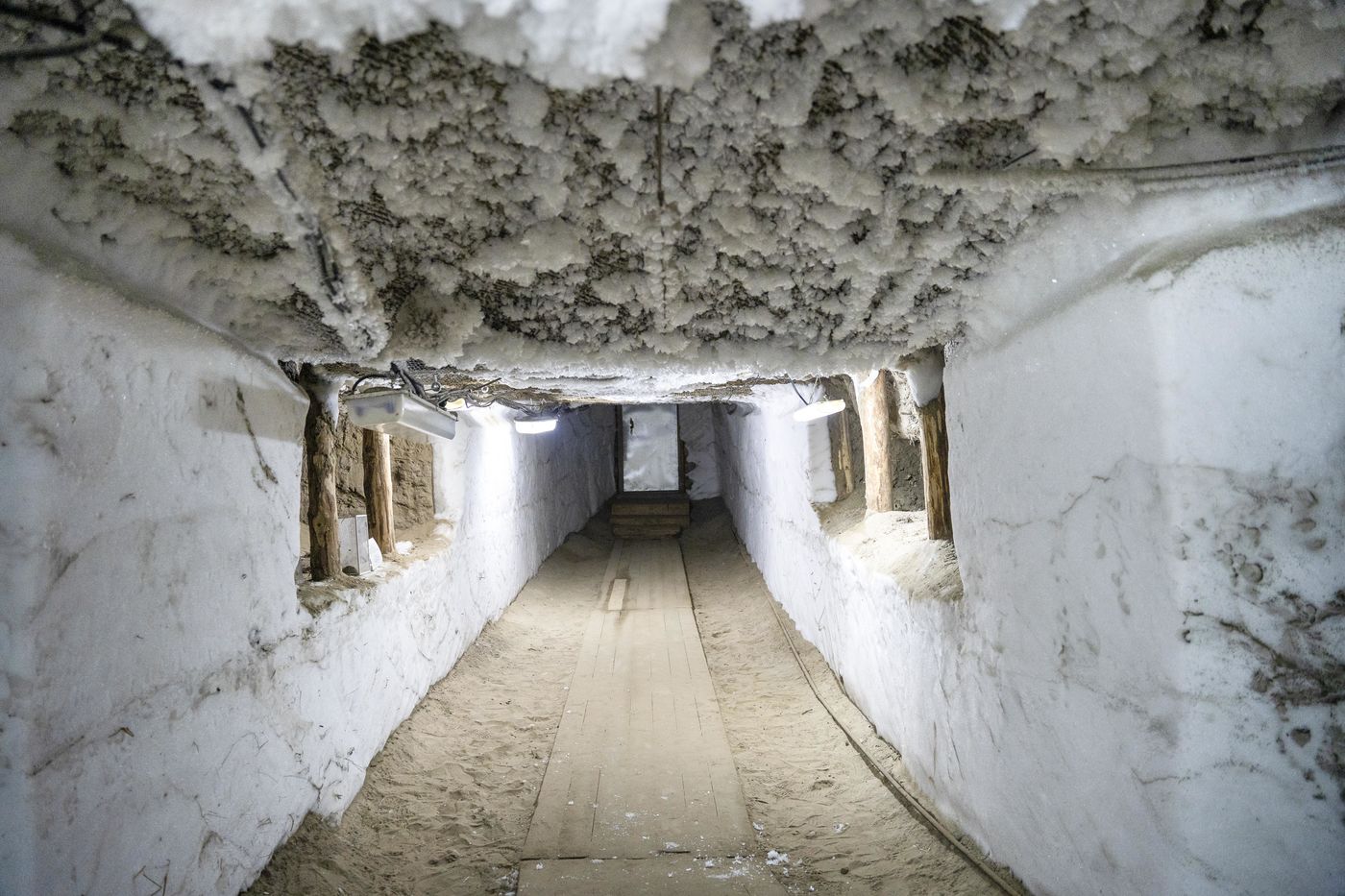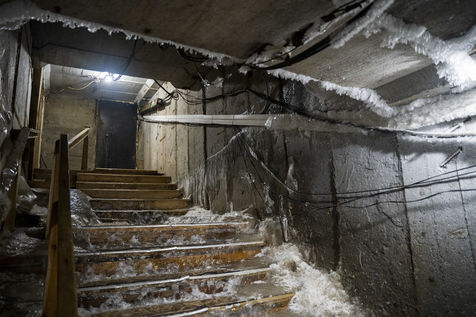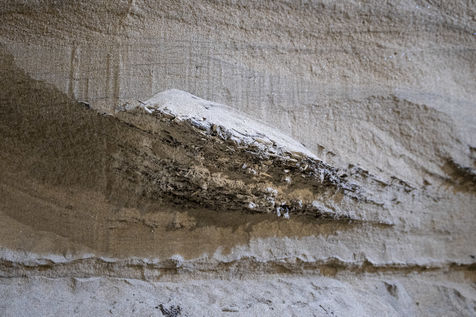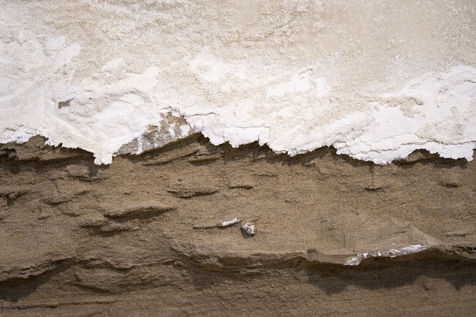Pour accéder à la série en entier, vous devez vous logger ou demander un compte Hans Lucas en cliquant ici.
Russie - Institut du Permafrost de Yakoutsk et thermokarst
"En près de trente ans de recherches sérieuses, la Russie est devenue l'un des principaux laboratoires in situ au monde sur la dégradation du pergélisol liée au réchauffement climatique et sur les réactions en chaîne que cette dégradation provoque", déclare Alexander Fedorov, le directeur assistant scientifique de l'Institut Melnikov du pergélisol à Yakutsk.
Mais depuis le 24 février, les collaborations scientifiques entre la Russie et certains pays sont suspendues. Plus grand territoire de permafrost au monde, la Sibérie est pourtant essentielle pour les recherches sur le réchauffement climatique. C'est l'une des innombrables conséquences de l'invasion russe en Ukraine et des sanctions occidentales imposées en réaction à la Russie. La plupart des projets internationaux menés en Sibérie et dans l'Arctique russe sur le changement climatique ont été suspendus.
Fondé dans les années 1960, ce centre de recherche de renommée mondiale est entièrement consacré à l'étude du pergélisol, ce sous-sol gelé en permanence qui couvre 60 % du territoire russe. Il emploie 250 personnes et gère plusieurs stations de recherche en Yakoutie, un immense territoire de Sibérie occidentale (aussi grand que l'Inde) où le réchauffement climatique est deux à trois fois plus rapide qu'ailleurs sur la planète. Alexander Fedorov y travaille depuis quarante-deux ans. "Nous savons qu'il se réchauffe depuis la fin des années 1970. Dès 1980, des postes d'observation ont été mis en place pour mesurer la température du permafrost, la profondeur de la couche active, le processus de dégradation...". Selon lui, les sanctions réduisent le financement des projets en Russie, mais elles affectent aussi les chercheurs occidentaux qui ne peuvent plus venir en Sibérie pour effectuer leurs missions de terrain.
De plus dans cette région située en Sibérie centrale, le pergélisol est très riche en glace. Sa fonte provoque la déformation du sol et l'apparition de monticules appelés « thermokarsts ». Ce phénomène a des conséquences dramatiques pour la population locale qui vit principalement de l'élevage de chevaux et de vaches car il rend les terres de pâturage inutilisables.
Reportage réalisé avec la journaliste Estelle LEVRESSE
Russia - Permafrost Institute and Thermokarst
"In nearly 30 years of serious research, Russia has become one of the world's leading in situ laboratories on permafrost degradation related to global warming and the chain reactions that this degradation causes," says Alexander Fedorov, the assistant scientific director of the Melnikov Permafrost Institute in Yakutsk.
But since February 24, scientific collaborations between Russia and some countries have been suspended. Siberia is the largest permafrost area in the world and is therefore essential for research on global warming. This is one of the countless consequences of the Russian invasion of Ukraine and the Western sanctions imposed on Russia in response. Most of the international climate change projects in Siberia and the Russian Arctic have been suspended.
Founded in the 1960s, this world-renowned research center is devoted entirely to the study of permafrost, the permanently frozen subsoil that covers 60% of Russia. It employs 250 people and manages several research stations in Yakutia, a vast territory in western Siberia (as big as India) where global warming is two to three times faster than elsewhere on the planet. Alexander Fedorov has been working there for forty-two years. "We know that it has been warming since the late 1970s. Since 1980, observation posts were set up to measure the temperature of the permafrost, the depth of the active layer, the degradation process...". According to him, the sanctions reduce the funding of projects in Russia, but they also affect Western researchers who can no longer come to Siberia to conduct their field missions.
Moreover, in this region located in central Siberia, the permafrost is very rich in ice. Its melting causes the deformation of the ground and the appearance of mounds called "thermokarsts". This phenomenon has dramatic consequences for the local population which lives mainly from the breeding of horses and cows because it makes the pasture lands unusable.
Reportage with the journalist Estelle LEVRESSE
